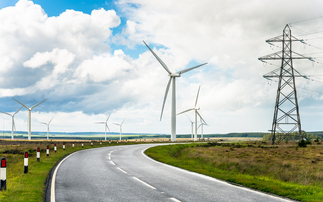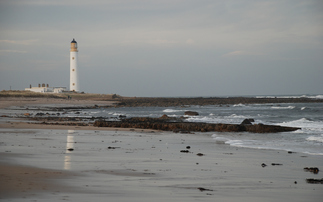Smart Energy GB and Energy Saving Trust reveal five simple energy saving actions that will help small business owners in the retail sector to cut down on their environmental impact
A study of UK businesses employing less than 10 people showed that less than half of small business premises have active energy management policies, in comparison to two thirds for large enterprises. This is despite the fact that almost half of retailers agree that having a better understanding of their energy use would give them greater control over their expenditure.
Retail consumes the most energy of all small business sectors, using 8,470 GWh per year - that's 39 per cent of the total amount of energy used by small businesses in the UK. This is why Smart Energy GB has partnered with Energy Saving Trust to create some expert advice compiled from various sources on how simple actions like turning down the heating during the winter. For example getting a smart meter installed could help small business owners cut down on their environmental impact and save a bit of money to boot.
1. Heating
Heating accounts for 39 per cent of the energy usage in the retail sector, so small changes here could have a big impact. During the colder months, shoppers are wrapped up warm and in plenty of layers - meaning you may not need to heat your shop as much as you normally do. The recommended temperature for a store is 19 degrees; lowering your in-store temperature by just one degree could reduce your energy usage by eight per cent.
2. Refrigeration
Cooled storage accounts for the second biggest energy usage in the retail sector. There are a number of things that retailers can do with little to no investment to produce big savings here. Regular cleaning and maintenance alone can provide energy savings of up to 10 per cent, whilst installing night blinds on refrigerators after closing hours could save up to 35 per cent on bills.
3. Switching off
Implementing a good 'shut-down' policy has the power to provide modest but regular energy savings - all by simply ensuring that devices are properly turned off and not left on standby at the end of the working day.
4. Review your energy data
Monitoring your energy usage throughout the day doesn't have to be a big job: check with your energy supplier whether you are eligible for a smart meter installation - it will help you to take control of your energy by allowing you to see your daily usage, helping you spot trends and pinpoint where you can make savings. Smart meters also give you accurate meter readings, ensuring that you only pay for the energy you are actually using.
5. Lighting
Something as simple as removing access lighting and using natural light wherever possible has the power to provide real energy savings with zero cost. However, if you are able to make an investment switching to LED bulbs and tubes has the potential to save hundreds of pounds a year. Additionally, installing movement sensors, daylight sensors and timers on lights could provide savings of up to 30 per cent.
To find out if your small business is eligible for a smart meter, contact your energy supplier.
Case study: Kernel of Hove
Eamon and his wife Louise run a vegetarian and vegan wholefood shop in Hove. They recently had a smart meter installed by their energy supplier to identify ways to save on energy and make their business even more sustainable.
We strongly believe in looking after the planet for the next generation, so it's hugely important to us that our shop is as eco-friendly as possible. Our fresh produce is all organically grown, which is a more sustainable alternative when it comes to food production, and it is largely sourced from local suppliers, which means we have very low food miles as well.
We're always aware, however, that there is more we could be doing, so when our energy supplier offered us a smart meter we jumped at the chance. We knew that it would help us to identify small steps we could take to cut down on our energy waste, and might save us a few pounds into the bargain.
Before we got the smart meter, it was quite difficult to understand our bills - commercial energy is more expensive than domestic and there was always a real disparity between the summer and winter bills. The meters were hidden away and so it wasn't really possible to keep track of our energy use or spend - we just had to wait for the energy bill to arrive and hope for the best.
All that changed when we had the smart meter fitted a year ago. It was very easy to arrange and the installation itself was quick and simple. We were instantly provided with near-real time access to our energy use and costs, which has made it so much easier to identify what is using the most energy and at what times. This has enabled us to take action to reduce unnecessary energy waste, like installing a PVC strip curtain on the open display chiller.
Our intention in opening up the shop was to bring healthy, eco-friendly shopping to our local community and to help others to cut down on their carbon footprint. The shop was built on the ethos of being green and cutting down on waste, and our smart meter plays a big part in that.
This article was sponsored by Smart Energy GB








